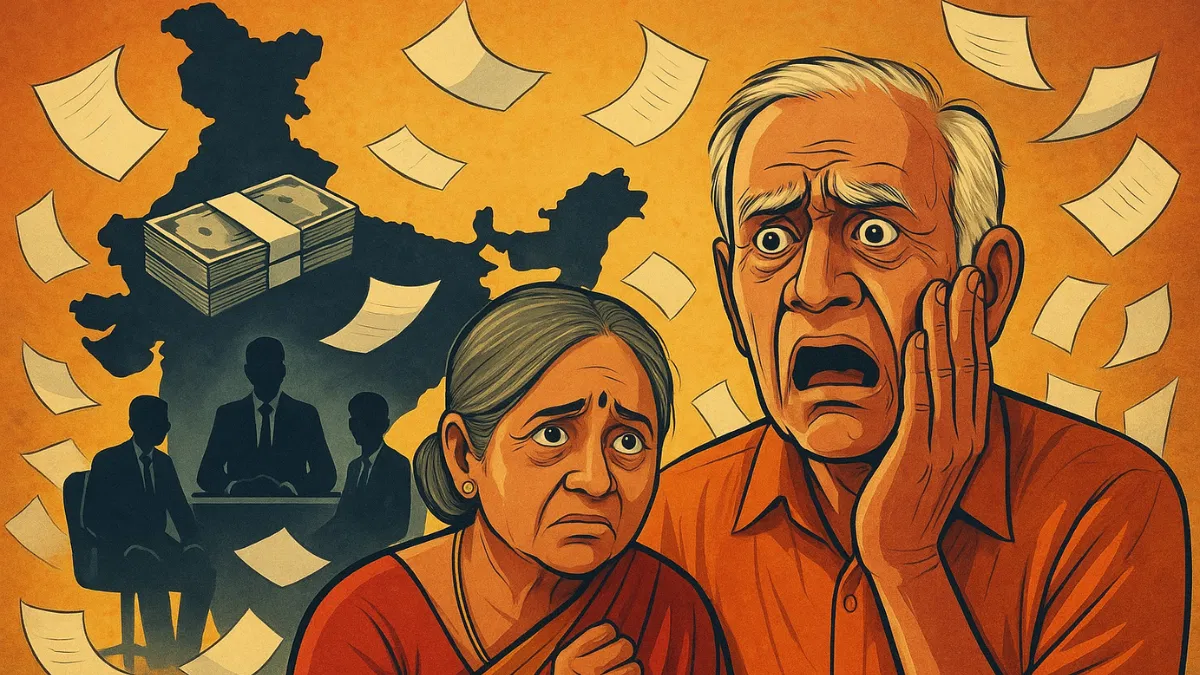8th Pay Commission: Missing Provisions Spark Concern Among 69 Lakh Pensioners — What They Got in the 7th Commission
- byManasavi
- 10 Nov, 2025

Over 69 lakh central government pensioners and family pensioners across the country are increasingly anxious about the recently released Terms of Reference (ToR) for the 8th Pay Commission. The apprehension arises because several key clauses that safeguarded pensioners’ interests in the 7th Pay Commission are missing this time. This omission has led to growing uncertainty among retired employees, who fear that their long-standing benefits and rights may be reduced or overlooked under the new pay structure.
Why Are 69 Lakh Pensioners Worried?
According to a report by Financial Express, the All India Defence Employees Federation (AIDEF) has raised concerns by drawing attention to the 7th Pay Commission’s ToR, which had clearly outlined the structure for pensions and retirement benefits.
The 7th Pay Commission included specific provisions to revise pensions for employees who had retired before the new recommendations came into effect. It also clearly stated that employees who joined service on or after January 1, 2004, would continue under the New Pension Scheme (NPS).
However, AIDEF notes that such pension-related clauses are missing from the 8th Commission’s framework. This omission, they say, could leave millions of pensioners without the benefit of upward pension revisions. The federation demands that the same clauses from the 7th Pay Commission be reinstated in the 8th, ensuring that old pensioners also receive appropriate increases once the new pay structure is implemented.
AIDEF’s Key Demands
AIDEF has urged the government to amend the 8th Pay Commission’s ToR and include pension-related provisions that were part of the 7th CPC. Their major demands include:
- The re-fixation of pensions for employees who retire before January 1, 2026, the expected date of implementation for the 8th CPC.
- Introduction of a mandatory 5% increase in pensions every five years to help retirees cope with inflation.
- Ensuring parity between civil and defence pensioners, similar to the reforms introduced under the 7th CPC.
These changes, AIDEF argues, are necessary to maintain fairness and prevent a situation where long-serving pensioners fall behind financially.
What Benefits Pensioners Got in the 7th Pay Commission
As per Cleartax data and government records, the 7th Pay Commission introduced several major benefits for both employees and pensioners.
Key Salary Revisions
- Minimum salary: ₹18,000 per month
- Maximum salary: ₹2,25,000 per month
- For top positions such as Cabinet Secretary, pay started at ₹2,50,000 per month.
- A uniform fitment factor of 2.57 was applied across all salary levels.
- Annual increment rate remained 3%, as per the 6th Pay Commission’s structure.
Major Pension-Related Reforms
- Parity between civil and defence personnel (including CAPFs) was implemented in pension calculation.
- The method of computing revised pensions was streamlined to ensure fairness.
- Disability pensions were shifted to a slab-based system, making it more transparent.
- Compensation for death in duty was revised upward for the dependents of employees.
These provisions provided significant relief to pensioners and set a clear benchmark for equity and transparency in post-retirement benefits.
What’s Missing in the 8th Pay Commission
The absence of clauses related to:
- Pension revision for pre-2026 retirees,
- Periodic pension increases, and
- Explicit parity across different categories of pensioners
has caused widespread concern. Pensioners’ associations argue that without these, the 8th CPC could leave a large section of retired employees without expected financial updates, despite rising inflation and cost of living.
The Road Ahead
As the Justice Ranjan Desai-led 8th Pay Commission begins its work, pensioners are urging the government to reconsider and include pension-focused terms in the final framework. Without these, experts believe, the government may face growing dissatisfaction among senior citizens and ex-employees who rely heavily on their pensions for livelihood.
For now, the message from pensioners’ groups is clear — “restore the 7th CPC benefits and ensure fair treatment in the 8th.”
In summary:
The 7th Pay Commission brought major pension reforms that supported fairness, periodic revision, and parity. The 8th Commission’s current draft, however, seems to have overlooked these, sparking anxiety among India’s 69 lakh central pensioners who now await clarity from the government on their financial future.




